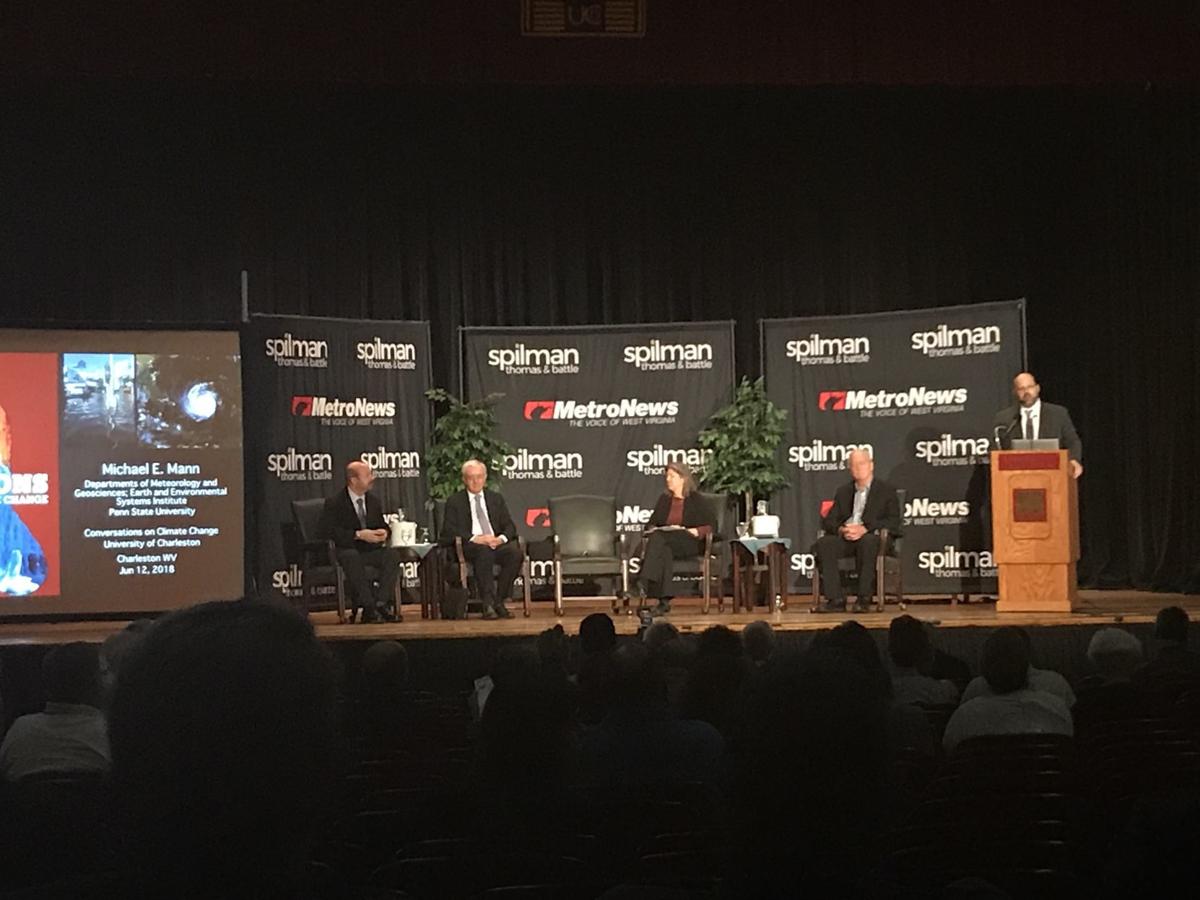Scientists debate human involvement in climate change during panel
By Jake Jarvis Staff Writer
CHARLESTON — Four of the top voices in climate change science came to West Virginia Tuesday night for a special panel discussion to probe how much humans are to blame for global warming.
The law firm of Spilman, Thomas and Battle hosted the panel, called “Conversations on Climate Change,” at the University of Charleston.
The event began with a warning about what it was not meant to do: It was not meant to debate the existence of climate change. That, the emcee said, is irrefutable. The four speakers were to present their own case for how much, if any, human activity and carbon dioxide have to do with climate change.
The panel played host to a who’s who of climate change discussion. It featured two academics from Pennsylvania State University, Michael Mann and David Titley, both of whom stressed that carbon dioxide is causing the earth’s climate to change.
The panel also included Patrick Moore, a former Greenpeace Canada president who has since become a vocal critic of climate scientists, and Judith Curry, a former Georgia Institute of Technology academic who resigned because of “academic political pressures” for her skepticism of popular climate change science.
“These thousand-year floods that you’re hearing about — of course West Virginia was one of those states over the past few years that experienced a flood that shouldn’t happen more than once in a thousand years,” Mann said. “And yet, they’re happening more frequently, and that’s because climate change is impacting these extreme weather events in ways that actually we didn’t understand a few years ago.”
In June 2016, at least two dozen people died in major West Virginia flooding, after which the federal government declared 12 counties to be a disaster zone.
Besides those weather events, Mann said people should look to glaciers and ice sheets. He said there’s a tipping point at which, if an ice sheet gets warm enough, there’s nothing that will be able to prevent it from cracking off and melting into the ocean.
Titley, a retired admiral in the U.S. Navy, said climate change poses a huge threat to the country’s national security. If the ocean levels rise too much, large coastal cities will become uninhabitable and will force mass migrations of millions of people, he said.
Both Mann and Titley stressed a point about climate change predictions: Most of the early predictions were too conservative about how quickly the earth would warm, and new predictions should be taken seriously.
For Judith Curry, one of the two climate science skeptics on the panel, the idea that an increase in carbon automatically increases the earth’s temperature is too simplistic. She said earth has many complex systems and there could be other factors playing into climate change that we don’t yet understand.
“The madhouse that concerns me is the one that has been created by some climate scientists,” Curry said. “The madhouse is characterized by rampant overconfidence in an overly simplistic view of climate change, enforcement of a politically motivated and manufactured consensus, attempts to stifle scientific and policy debates, activism and advocacy for their preferred policies, self-promotion … and public attacks on scientists who don’t support the consensus.”
Moore, the former Greenpeace official, attributed climate change to natural changes in the earth and suggested that humans should even be happy there’s more carbon dioxide in the air because it helps plants grow.
Moore displayed several graphs during his part of the presentation, but Mann said many of them were old ones that used data and methods that would not be acceptable in scientific publications today.
Jake Jarvis can be reached by phone at 304-935-0144, on Twitter at @NewsroomJake or by email at [email protected].


